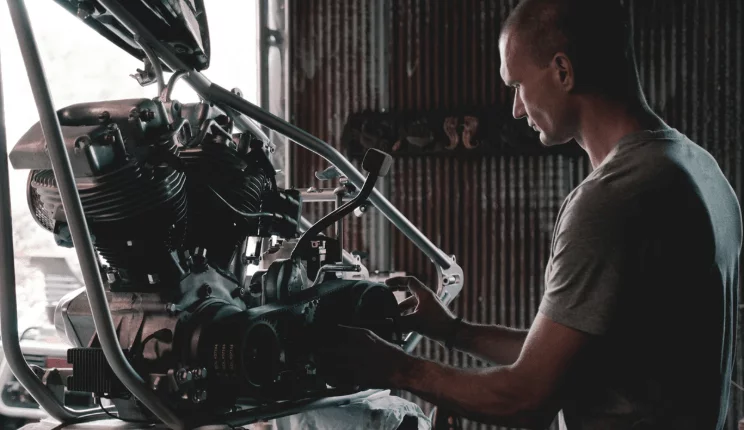How to Sue a Mechanic Shop (5 Reasons)
There are several reasons why you might want to consider suing a mechanic. Whether the mechanic failed to fix the problem you paid for or the problem was worsened, finding yourself in this situation is frustrating.
In this article, you will learn how to sue a mechanic shop as well as five reasons why you should.
How to Sue a Mechanic Shop (5 Reasons)
We’ve all heard the horror stories: someone brings their vehicle into the shop for repairs only to pick it up and realize the problem is worse. A simple tire change turns into a new paint job after the mechanic scratches the body to pieces. An easy oil change quickly results in disaster after an inexperienced mechanic punctures the toil canister, rendering it completely useless.
Or, maybe a client receives a bill with a list of services a mile long – including some they never wanted or expected.
Situations like these can result in extreme financial strain, loss, or even injury for an unsuspecting client. That’s exactly why consumer laws allow individuals to sue a mechanic if they believe the service provided was negligent in any way.
Your local County Clerk’s office can help you file a lawsuit and set a date in court to make your case in front of a judge. In the meantime, the information below will help you understand the most common reasons consumers sue mechanics.
No Estimate (Or False Estimate)
In the state of California, mechanics must provide you with an accurate, updated estimate of all provided services before they begin working on your car. Furthermore, estimates are strictly regulated in that they must contain certain information. This usually includes a full list of all services to be provided, parts used, and costs associated with the repair.
You must agree to the estimate before the mechanic can officially begin to work on your car. If you decline or request a review, the shop cannot simply begin to do the work and try to force you to pay the bill anyway later on.
Rules for changes to an estimate also exist. For example, if a mechanic begins a simple vehicle inspection, but finds a partially broken alternator belt along the way, they cannot just replace the belt and charge you for it later. They need to contact you, create a new estimate, and get your approval for the new assigned cost first.
The biggest problem with estimate adjustments is the fact that the manner of approval can feel a little murky. Some shops call clients on the phone and have them verbally agree to the changes. This leaves too much room for misinterpretation and manipulation. Instead, you should always get changes in writing.
Improper Mechanic’s Lien
There are a few situations where a mechanic’s shop might be able to place a lien on your vehicle (referred to as a “mechanic’s lien”). Essentially, a valid lien grants the shop the right to seize your vehicle as payment against an owed debt. But this is much more complicated than just saying, “I’m keeping your car until I’m paid.”
First, know that most shops and individual mechanics consider this option to be an absolute last resort. They turn to it only when all other demands for payment have been exhausted. If a mechanic is constantly threatening you with liens after you are a day or two late on a payment, consider this a red flag.
Secondly, not every mechanic can place a legal lien. Unlicensed contractors, for example (amateur mechanics) cannot place a lien for amounts larger than $500; there is simply no legal jurisdiction for this to be permitted. They can, however, still sue you in the civil court without a lien.
A lien is also not necessarily valid just because you haven’t yet paid your mechanic the full amount owed. Mechanics must meet certain timelines and include specific information in order to create a valid lien. If they neglect to adhere to any one of the following guidelines, the lien itself may be considered legally invalid.
- Preliminary Notice – The mechanic must notify you of their intent to place a lien on your vehicle within no more than 20 days of the provided service. It may only include services, parts, and associated fees that were incurred within this 20-day time period (not before or after).
- Notice of Mechanics Lien – The next step is to file a Notice of Mechanic’s Lien. This must include a full list of provided services, parts, and labor, contact information for both parties (including the shop’s physical address), and a Proof of Service Affidavit. Furthermore, it must be filed and provided within 90 days of the original service date.
- Foreclosure of Lien – After you have been notified, the mechanic must file a lawsuit in the civil court within 90 days. This allows them the opportunity to seek court approval to foreclose (finalize) the lien. If they fail to follow service of process or don’t show up to court, the judge may rule the lien invalid.
If a lien is judged invalid, you have the right to sue the mechanic’s shop for compensation. This may be in the form of money or simply as the return of the vehicle on which they placed the lien.
Breach of Warranty
Not every mechanic is approved by car manufacturers to work on their vehicles. This is important because a mechanic might inadvertently void the warranty on a new vehicle when they provide you with service. For example, if you have an amateur mechanic repair your transmission, and it later fails, the manufacturer may refuse to honor their warranty as a direct result, leaving you to pay out of pocket.
On the other hand, if a mechanic agrees to warranty their services, but later refuses to honor the warranty, you have rights there, too. You can sue them for compensation or to force them to honor the warranty (which is considered a legal contract).
Poor Workmanship
Shoddy work isn’t just annoying – it’s a good reason to sue, too. This is especially true when poor workmanship results in injury or harm to you or another third party (e.g., a vehicle accident). An amateur mechanic who fixes your brake line may be culpable if the line later fails while driving due to their own incompetence.
However, an imperfect service isn’t necessarily poor workmanship. There are situations where issues may come up (such as a broken lug nut when changing a tire) that may be inadvertent, accidental, or even caused by outside influences. What must be asked is whether the work met reasonable expectations. For example, a mechanics shop that installs the wrong part is obviously incompetent.
Note that poor workmanship that results in accidents may qualify you to sue not only for the vehicle or workmanship itself but also for personal injuries.
Fraud, Scams, and Deception
Note that there have been situations where mechanics and other service providers have attempted to defraud or scam clients. This includes abusing the lien process in an attempt to extort money from clients, unfairly inflating bills, lying about services, tacking on imaginary fees, or even charging for services they never really provided.
One of the most common scams involves charging clients for new or branded parts when in reality, the mechanic picked the part up second-hand from a junkyard. If you aren’t aware enough to recognize the difference, this can fly under the radar until the part breaks down and you realize you’ve been duped.
No matter what the exact method, fraud, and deceptive business practices are almost always a reason to sue. However, you must have evidence – and that can be difficult to find. An attorney can help you investigate.
Can You Sue a Mechanic for Taking Too Long?
Maybe – but this can be extremely difficult to determine on your own. The problem lies with determining the exact definition of “too long.”
Some vehicles are difficult to repair, either because they are extremely complex to work on or because it is hard to find parts for them. Rarely, it might even take months to find a part; this is often the case for older antiques. The dealer should, however, keep you apprised of the situation and set reasonable expectations in advance.
On the other hand, some mechanics put off repairs for other less necessary reasons, like procrastination, laziness, or lack of resources (e.g, can’t afford parts). A dealer who holds your car on the lot for a month or more without completing repairs, and cannot give you a good reason why is in effect providing a bad service.
Additionally, it is important to note that a breach of anything outlined within your original contract is, in fact, a reason to sue. A mechanic who promises to finish within a month, yet finishes in month three, is considered negligent for breach of contract.
Lastly, you must have experienced some kind of damages or loss as a result of being without your vehicle. For example, if you lose your job due to lack of transportation, you may have a case. If you aren’t able to socialize on the weekend, and that is your only concern, you probably don’t have a reason to sue.
Now that you know how to sue a mechanic shop, you can take the next step to resolve your situation.
Are you in search for a certified attorney to represent you?
Let us help you find one today!



